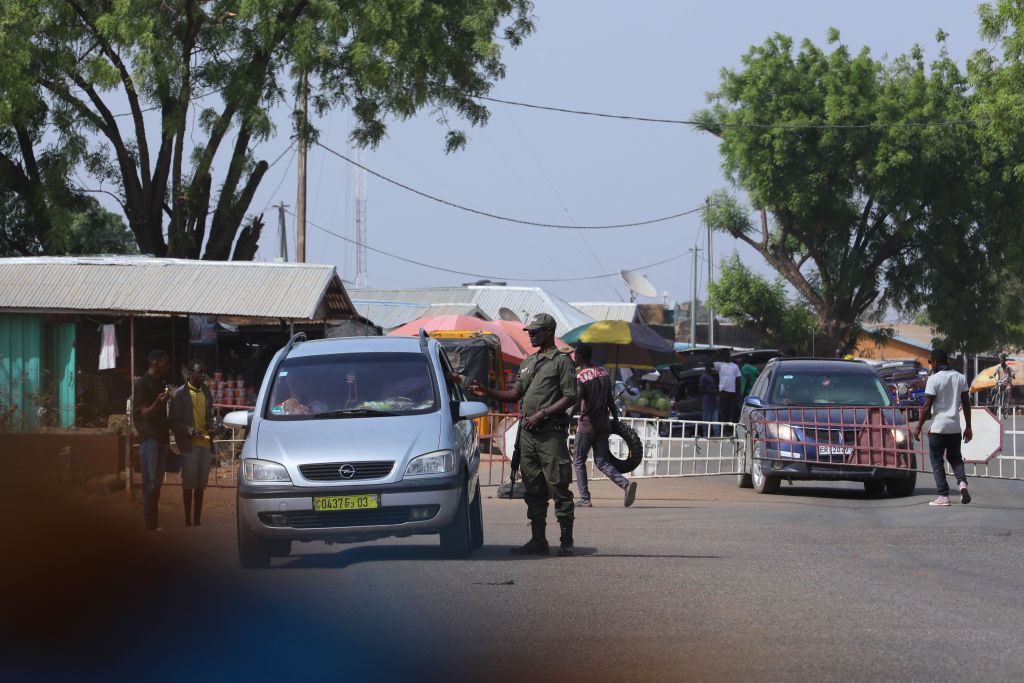The Islamic State group (IS) aims to expand its terrorism beyond the Sahel region and into North Africa and West Africa, analysts say.
Beverly Ochieng, a senior analyst at geopolitical risk consultancy Control Risks, said IS is focused on exploiting security gaps in areas it views as vulnerable.
“Because the counterinsurgency infrastructure in Mali, Burkina Faso and Niger has been compromised, then it allows them to make inroads into other countries that they perceive to be vulnerable,” Ochieng told Voice of America.
On March 24, at least 12 Cameroonian Soldiers were killed and more than 12 wounded during a nighttime attack by terrorists on the Nigerian border. Officials said the attack was carried out by extremists from Boko Haram or a breakaway faction loyal to the IS, The Associated Press reported.
The Cameroonian Ministry of Defence cited the “advanced weaponry they increasingly have at their disposal” and the “apparent alliance with powerful transnational criminal entities” as contributing factors to the attack.
In North Africa, Morocco has been targeted. In late February, authorities arrested 12 people in nine cities who allegedly were connected to a planned attack by the IS Sahel.
In November 2024, Morocco’s Central Bureau of Judicial Investigations and Spain’s General Intelligence Commissariat dismantled an international IS terror cell. Nine suspects operating in two Moroccan cities, two Spanish cities and on the island of Ibiza were arrested, Morocco World News reported.
Observers have drawn comparisons between how IS affiliates have amassed territory in the Sahel with the group’s rise in the Middle East about a decade ago.
“The scale and the threat of ISIS operations in Africa right now remind me, eerily so, of what we saw in Iraq and Syria in 2013 and 2014,” Charles Lister, a counterterrorism expert at the Middle East Institute, told Politico. “I mean, an army of ISIS is basically marching at will through the Sahel and taking over military bases.”
David Doukhan, a research fellow at the International Institute for Counter-Terrorism (ICT) at Reichman University in Israel, wrote that groups linked to the IS are approaching the borders of Benin, Ghana and Togo and other areas in West Africa with intentions to form an Islamic state.
In regions they control, IS groups typically radicalize populations already discontented with their central government and intensify local conflicts to further destabilize areas subject to political, economic and social instability. “Given the weakness of the states, creating an Islamic legal state in West Africa is, in my opinion, a reasonable possibility,” Doukhan wrote on the ICT’s website.
Forests in porous border areas make it easier for terror groups to hide, communicate with other terror groups and smuggle people and drugs. These areas include the Sambisa Forest in Nigeria, the W-Arly-Pendjari Complex on Burkina Faso’s southern border with Benin, and the Dida Forest on Burkina Faso’s northern border with Côte d’Ivoire.
These locations help terror “organizations improve their attack capabilities, establish contacts, and exchange information even with terrorist organizations operating outside the African continent, thus transferring attack capabilities and the means to implement them,” Doukhan wrote.
Amina J. Mohammed, deputy secretary-general of the United Nations, in January noted that violent attacks in West Africa had surged by 250% in the past two years.
“At this rate, in West Africa, the future is at stake,” Mohammed told the U.N. Security Council. She said the marginalization of youth, coupled with soaring unemployment, has left an entire generation vulnerable to extremist groups. Mohammed called for innovative approaches and enhanced regional cooperation to combat the scourge. “If we don’t act, we risk losing this generation to the horrors of terrorism,” she said.
Said Djinnit, senior advisor at the African Center for the Constructive Resolution of Conflicts, said a strong state presence can help local authorities better combat extremism.
“Their proximity to community places them in a unique position to address local grievances and foster resilience,” Djinnit told the Security Council.

